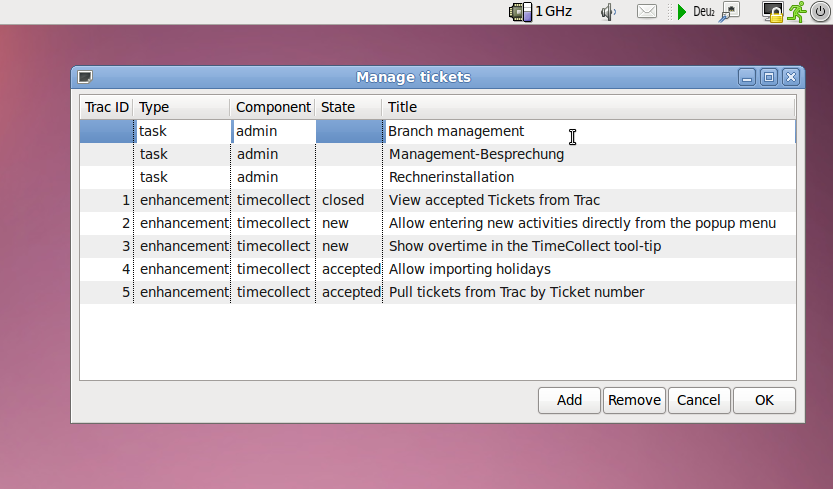TimeCollect
your personal time keeper

Overview
TimeCollect keeps track about the time you spend on your software development work. The detailed statistics produced is stored in a database and can either be used for self-monitoring or accounting and charging for software development.
The current version can be downloaded from the TimeCollect project page. See the current release notes for the latest changes.
Painless Time Recoring
TimeCollect makes time recoding extremely easy. The installer puts TimeCollect into your auto start folder in Windows. Directly after system startup, TimeCollect is available in the system tray of your desktop. From the context menu of the TimeCollect icon you can select your current task. The icon shows the activity state (either working, or paused). A single click on the icon switches between both states. In working mode, TimeCollect writes the time record into a database of your choice.
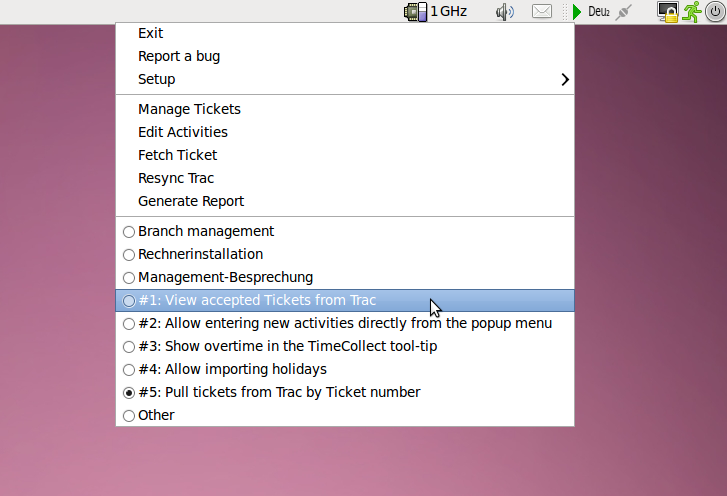
Direkt work time display
The tooltip of the TimeCollect icon in the system tray, informs about the amount of time spent at work the current day, the current week and the current month.

Complete control over your data
The time record can be edited from within TimeCollect in a convenient editor. If you forgot switching a task or reactivating TimeCollect after a pause, just select the "edit activites" dialog from the context menu and fix the time record manually.
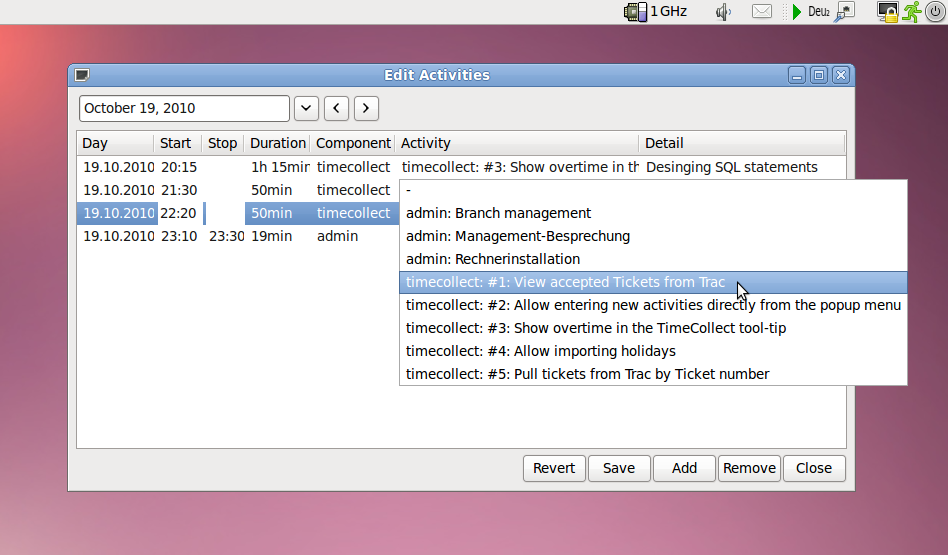
Open Format
The collected work time is stored in a standard SQL database (either in a built-in JavaDB, or an external MySQL database). Besides the TimeCollect built-in reporting and exporting functionality, you can also access the TimeCollect database with third-party tools and further process the data.
See the description of the database schema for details.
Custom Reports
TimeCollect has a built-in query engine, which can access the TimeCollect database with custom SQL scripts and format the results in a pleasant way. The functionality can be used to export statistics and invoice data directly from TimeCollect.
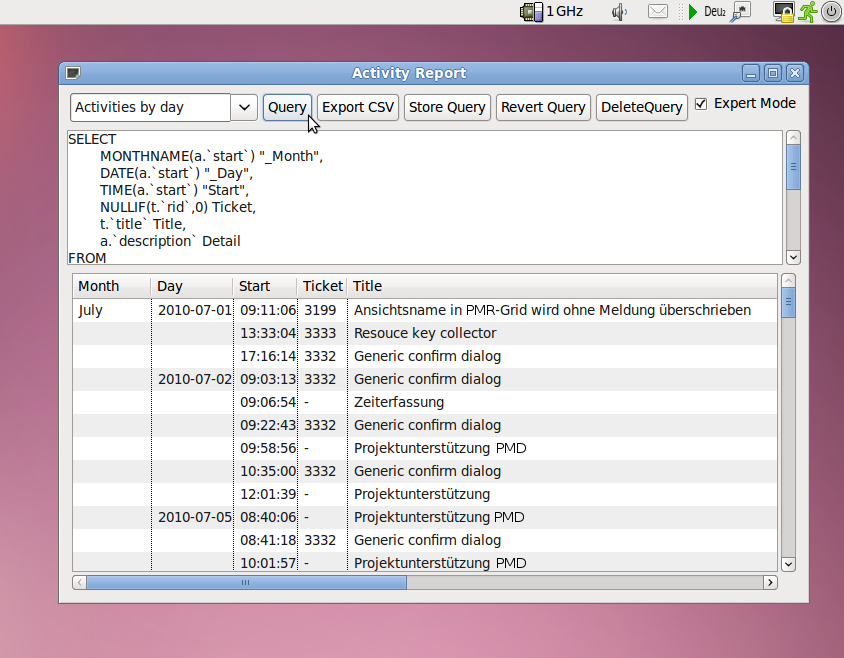
Ticket System Integration
The jobs for which time is recorded can either be managed locally within TimeCollect or fetched from an external ticket system. Both kinds of jobs are available in the TimeCollect context menu for direct selection. At the moment integration is available for the XML-RPC-Format of the Track ticket system.
Jobs can either be selected through a configured Trac query, or fetched by a direct search through the "fetch ticket" dialog (Ctrl-Alt-F).
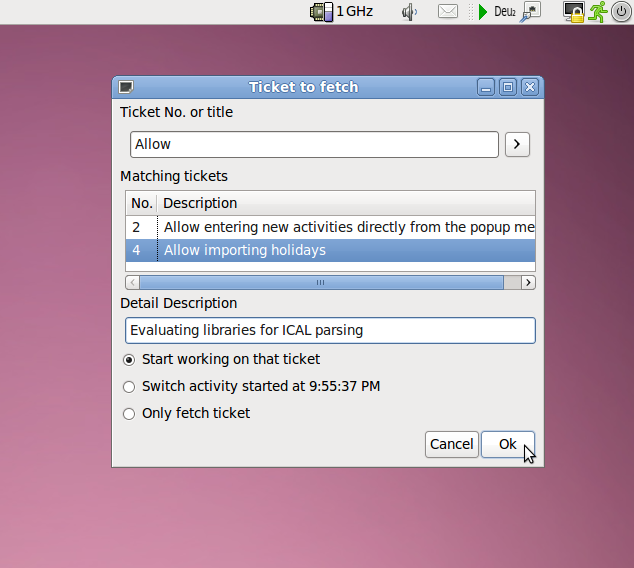
UI Integration with Trac
A Trac plug-in is available that allows to embedd the TimeCollect UI within the Trac web interface. This allows to select the current activity directly from within the Trac ticket view. To use this functionality, it is not required to install Trac and TimeCollect on the same system.
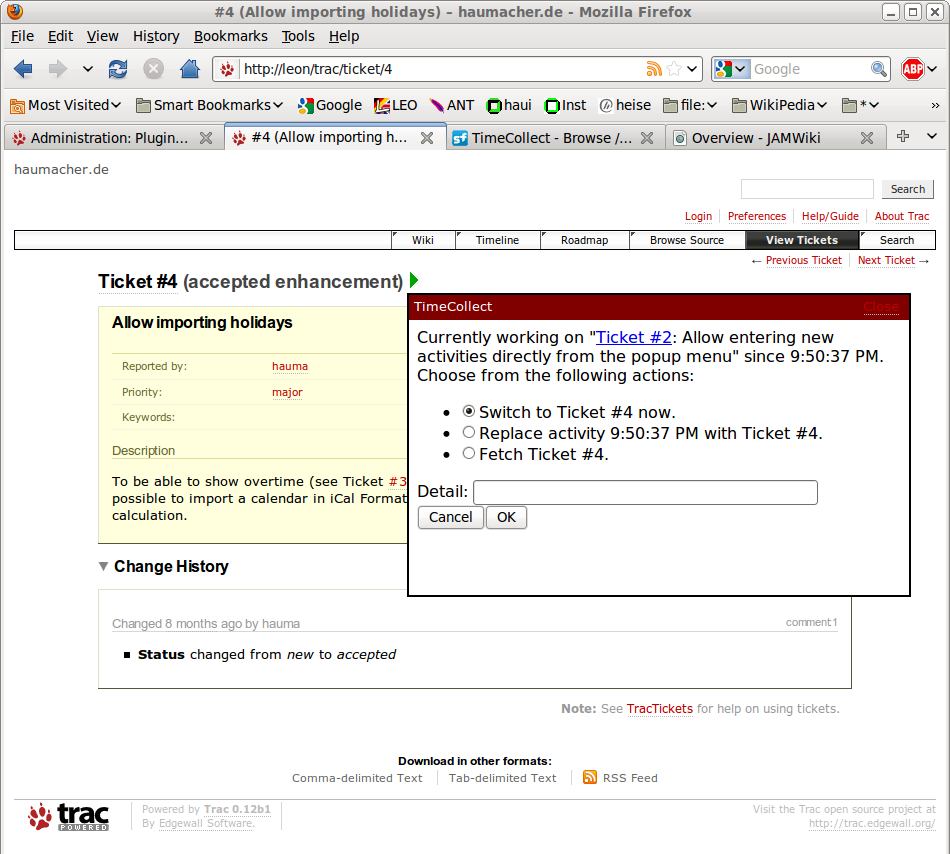
Built-In Ticket System
Is no external ticket system available, jobs can be managed locally within TimeCollect. The "manage tickets" dialog offers an editor for creating and editing activities that are available for time recording within the TimeCollect context menu.
